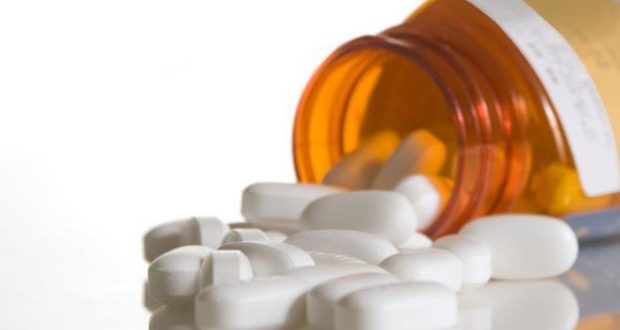Parents and patients will have to buy certain medicines rather than having them on prescription, if money-saving proposals are approved.
Lincolnshire Clinical Commissioning Groups (CCGs) say up to £13.5million per year could be saved if it ends prescriptions for drugs available over the counter, including painkillers and antihistamine.
They are also consulting on a plan to restrict the prescription of gluten-free products, baby milk (including specialist infant formula) and nutritional supplements – unless in exceptional circumstances.
Patient champion groups have said the proposals could lead to people being put under financial strain or lead them to seek alternatives that put their health at risk.
Nationally around 90 per cent of prescriptions are for people exempt from charges.
The Lincolnshire Medical Management consultation report said: “The four CCGs have a big financial challenge to meet in the short term. Currently we are spending £38m more than our existing budget.
“We think the money we spend on items that are readily available over the counter might be better spent on treatments, staff and essential services that patients cannot get in any other way.”
Under the plans, medicines that would no longer be available on prescription would include treatments for diarrhoea, constipation, threadworm, haemorrhoids, heartburn and indigestion, creams for vaginal and vulval infections or thrush and those for fungal infections such as athlete’s foot; nicotine replacement and malaria prevention.
When prescribing for minor ailments the NHS pays both for the medication plus the additional cost of dispensing it. For example, a packet of paracetamol, which can cost 25p in a supermarket, costs CCGs £2.50.
The report says an end to prescribing gluten-free foods could save Lincolnshire CCGs up to £472,000.
Also under the proposals, prescriptions will not usually be provided for soya and thickened baby formula and those for lactose intolerance, saving up to £740,000 annually.
Parents qualifying for Healthy Start vouchers can use their vouchers to purchase infant formula milk, the report says.
It adds that Lincolnshire CCGs annually spend £2.9 million (roughly equivalent to 750 hip replacements) on prescribed nutritional supplements, often to older people in care homes – needs it says can usually be met through diet.
Coeliac UK believes any cuts to gluten-free prescriptions will leave vulnerable patients with coeliac disease without support which will affect their ability to stick to the gluten-free diet and could result in serious side effects that require treatment that costs the NHS more.
Sarah Sletcher, chief executive of Healthwatch Lincolnshire was also concerned for patients who may have to buy specialist baby formula.
She said: “ A lot of those products are expensive. People might try to find alternatives that aren’t going to do their health any good.”
But added: “We have got to think about the fact that as a health economy we cannot carry on as we are, some things have to give.”
Dr Kevin Hill, GP and chairman of South Lincolnshire CCG, said: “People who need to be prescribed medicines for conditions where the clinical need can only be met by prescription will continue to receive them as usual.”
Consultation on all the proposals is running until Friday, November 18. Changes could potentially come into effect from December.
The online survey can be found at www.southlincolnshireccg.nhs.uk
 The Voice of Spalding and South Holland
The Voice of Spalding and South Holland




